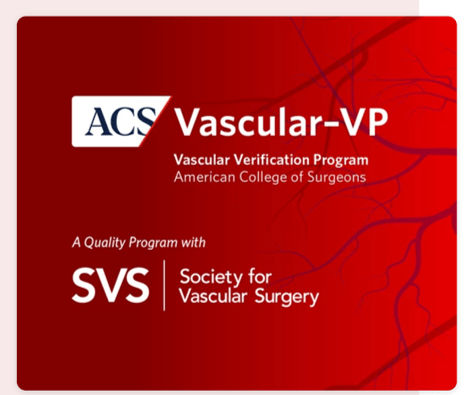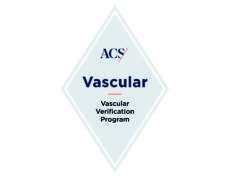
The Society for Vascular Surgery (SVS) and the American College of Surgeons (ACS) have released new standards for outpatient vascular centers to help them provide optimal care and treatment of patients receiving vascular surgical and procedural care.
These new standards, outlined in the Optimal Resources for Vascular Surgery & Interventional Care—2023 Vascular-VP Outpatient Standards manual, are part of the Vascular Verification Program (Vascular-VP), launched earlier this year by the SVS and the ACS. These standards provide the requirements necessary for outpatient vascular centers to achieve and maintain verification for their vascular programs.
“Outpatient facility verification by this program demonstrates to patients, referring physicians, regulators, and payors that high quality, high value, vascular care is being delivered. Participants who successfully complete the verification process will be setting the standard for vascular care in their community,” said William Shutze, MD, chair of the Vascular-VP Outpatient Work Group and a vascular surgeon with Texas Vascular Associates in Plano, Texas.
Vascular-VP, which now offers verification for both inpatient and outpatient vascular centers, leverages the strengths and expertise of the SVS and ACS to provide a program that provides an evidence-driven, standardized pathway for instituting and growing a quality improvement and clinical care infrastructure within a center’s vascular program.
The release of this new set of standards within Vascular-VP encourages sites to put the same emphasis on quality in outpatient settings that is applied to inpatient settings, as more surgical services are directed to outpatient centers.
These new Vascular-VP outpatient standards detail elements of vascular surgical care and quality across nine domains, including:
- Institutional commitment
- Program scope and governance
- Resources for facilities, equipment, services, and personnel
- Clinical care
- Data abstraction and analysis
- Quality improvement
By participating in the Vascular-VP program and complying with these standards, outpatient vascular centers can develop the tools necessary to provide safe, effective, patient-centered, timely, efficient and equitable care to all vascular patients.
Together, the SVS and ACS sought to evaluate and improve the quality of care for vascular patients with the following elements: program-specific standards; infrastructure needed to meet such standards and deliver high-quality, high-value care; data collection and analysis; and verification site visits to ensure proper implementation and maintenance of these components
Centers interested in becoming verified and continuing the quality improvement journey of their vascular service are encouraged to apply online.












